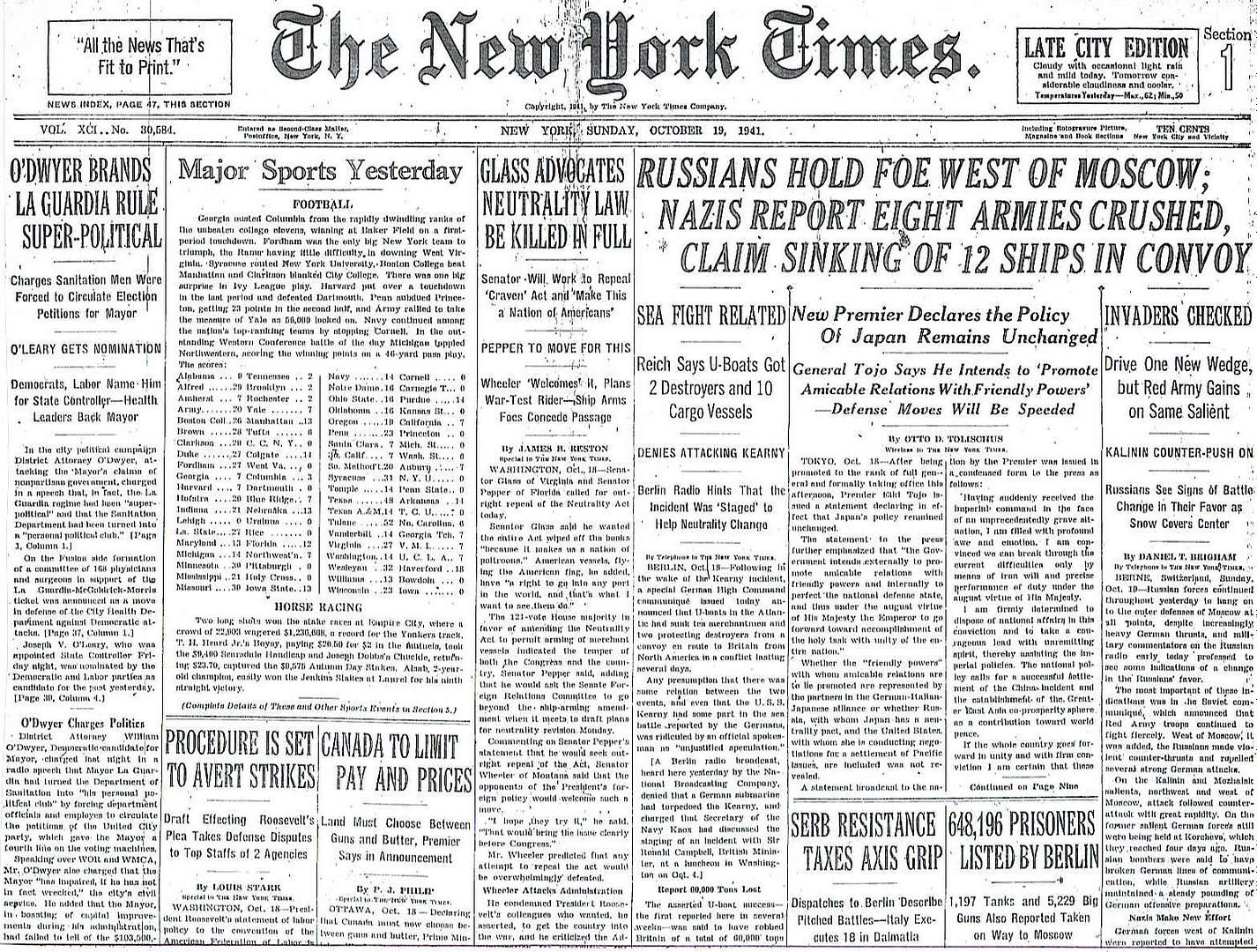
Posted on 10/19/2011 5:24:20 AM PDT by Homer_J_Simpson

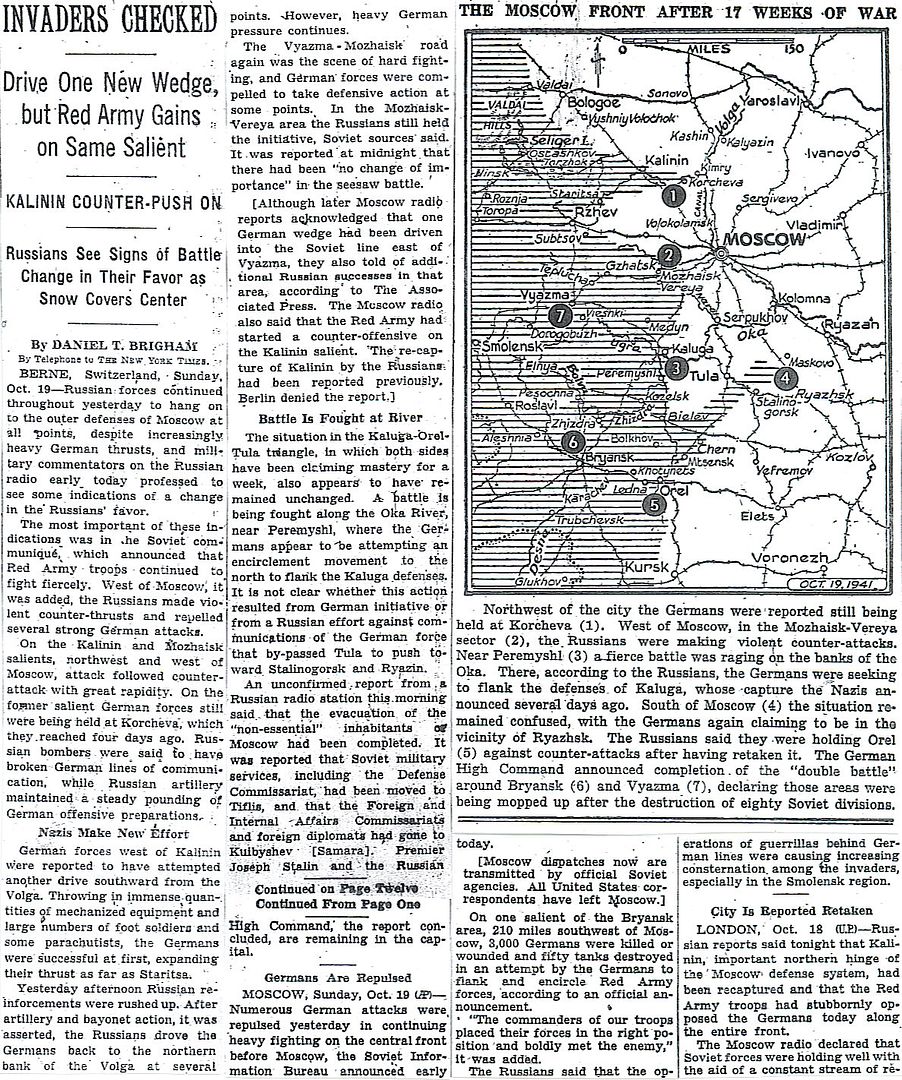
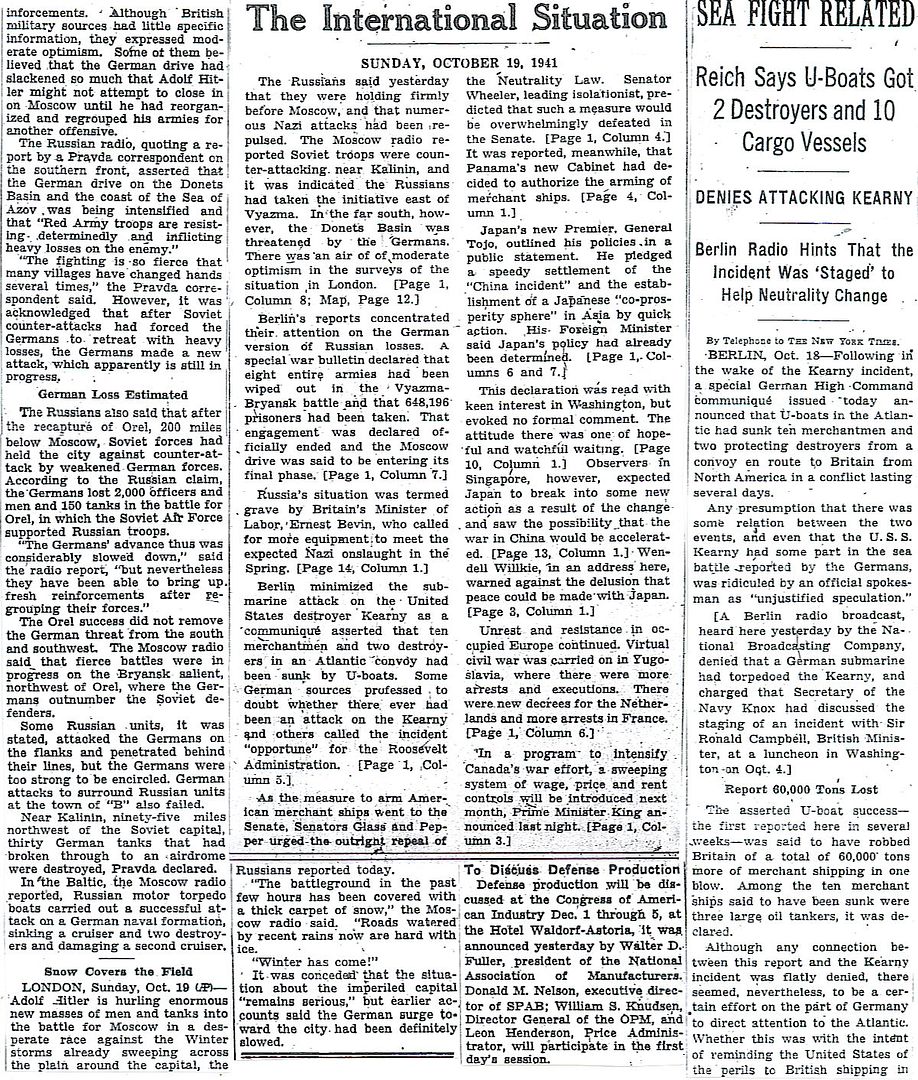
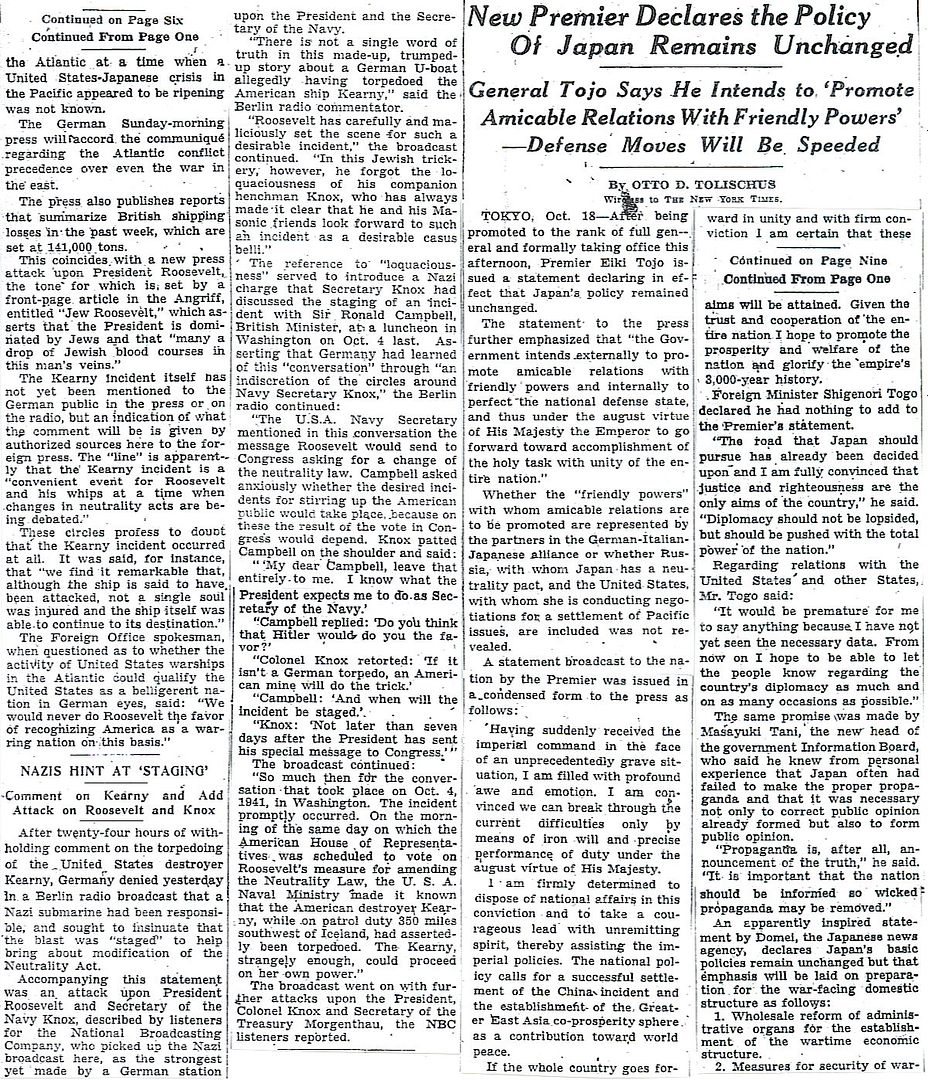
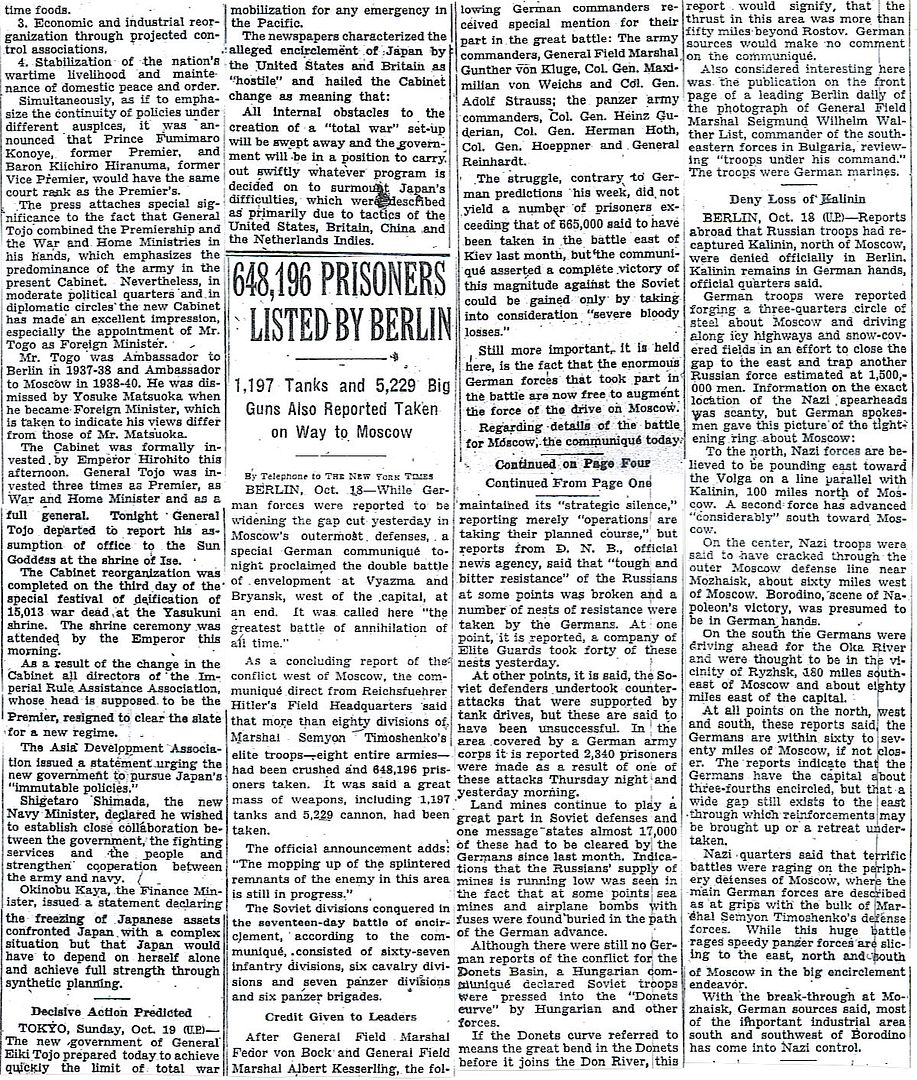
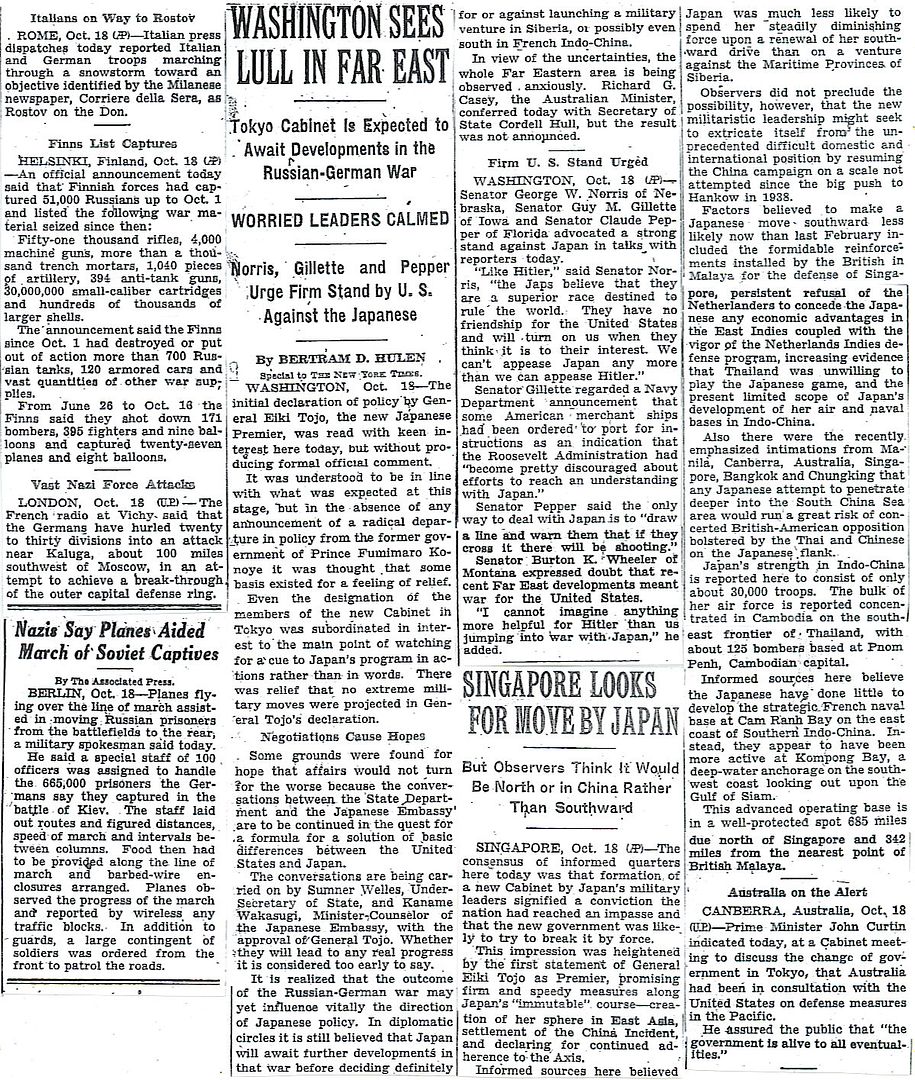
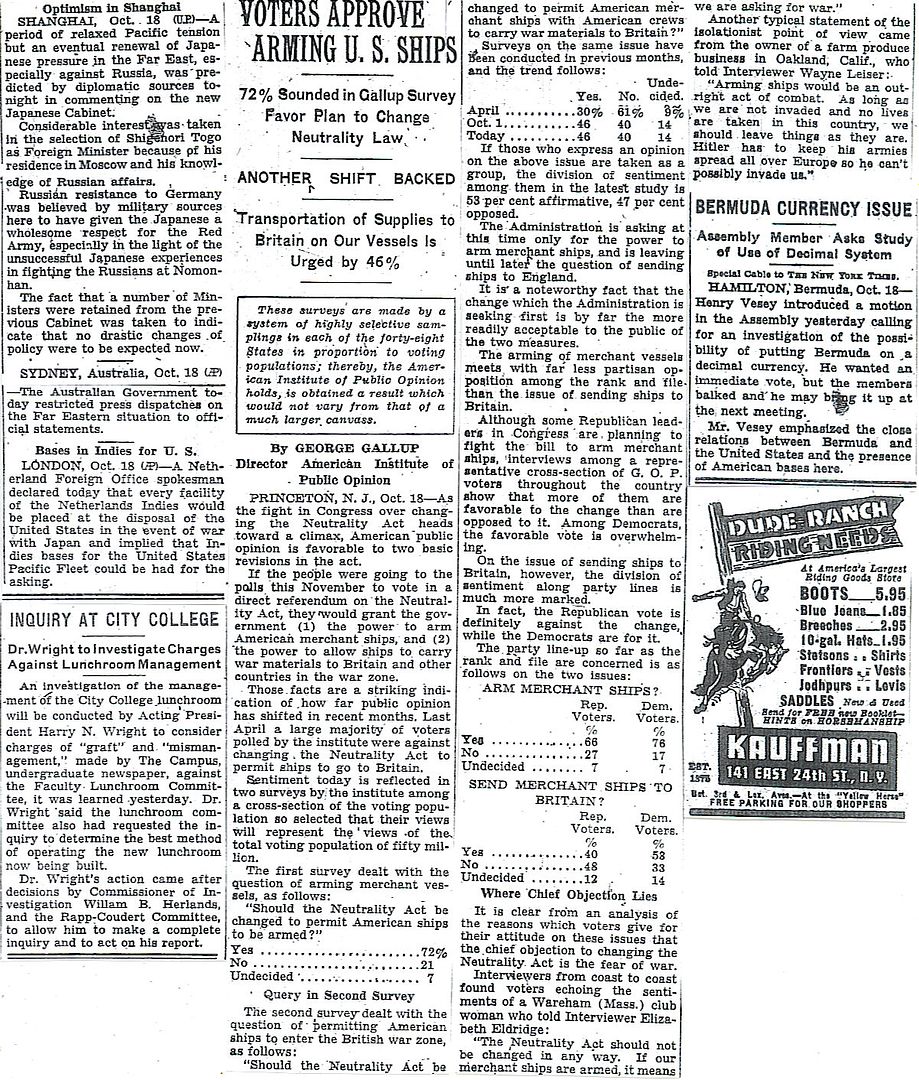
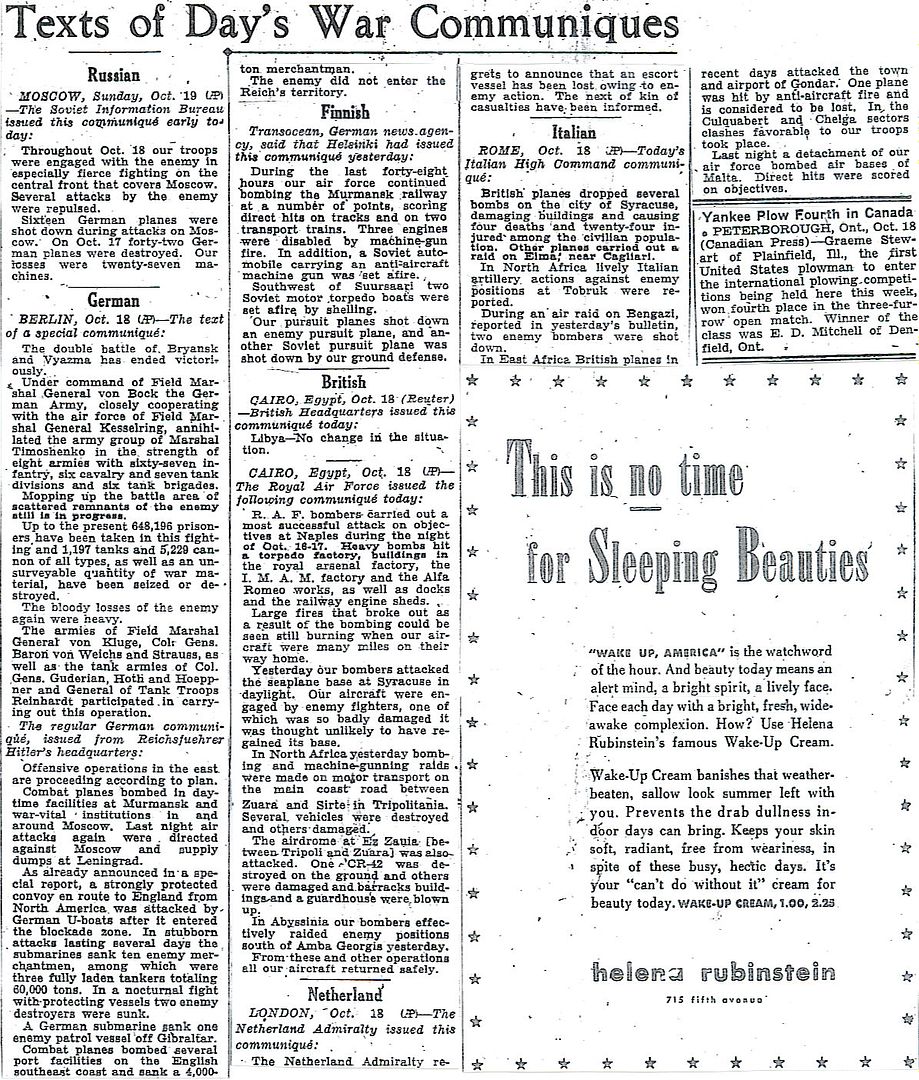
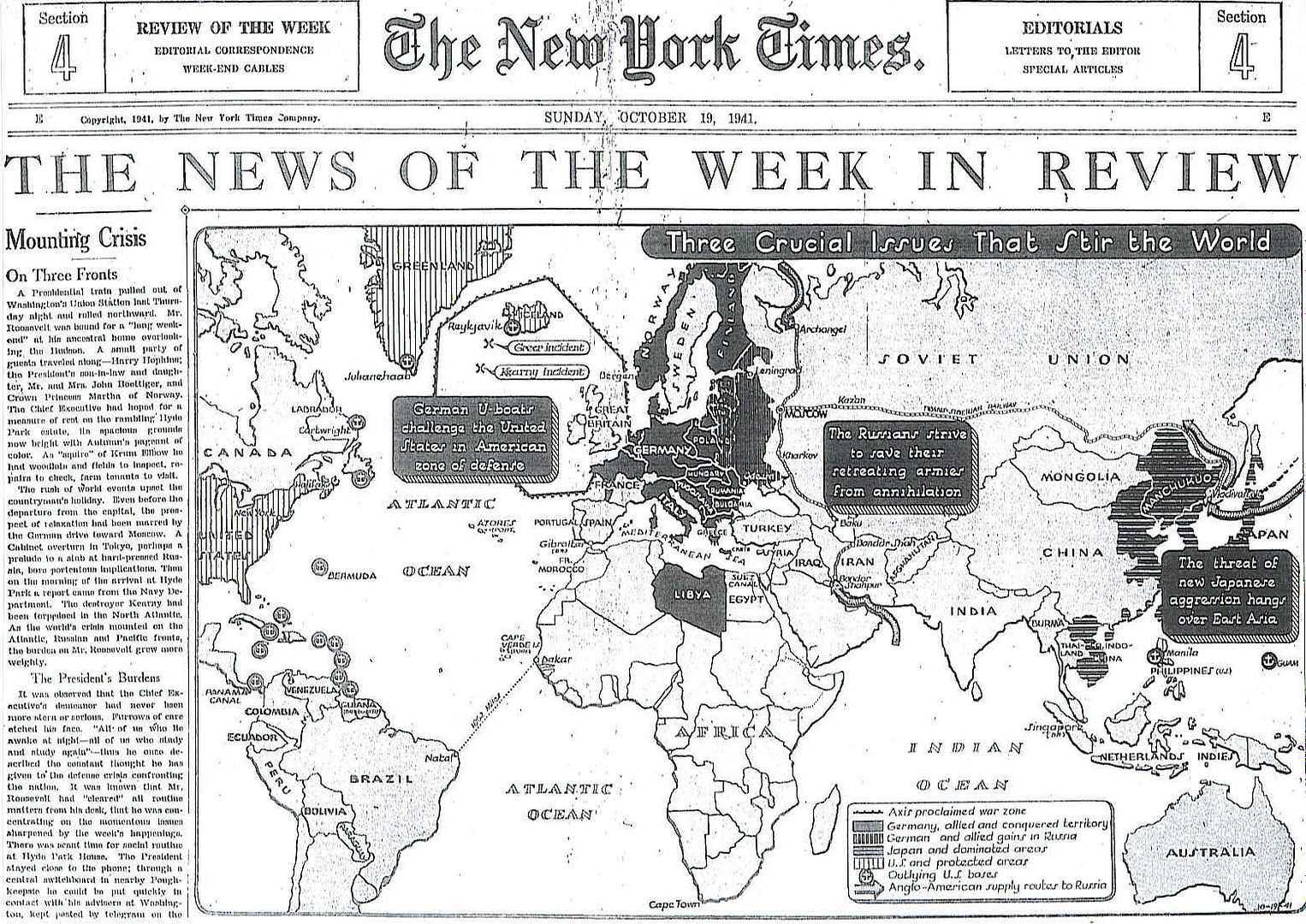
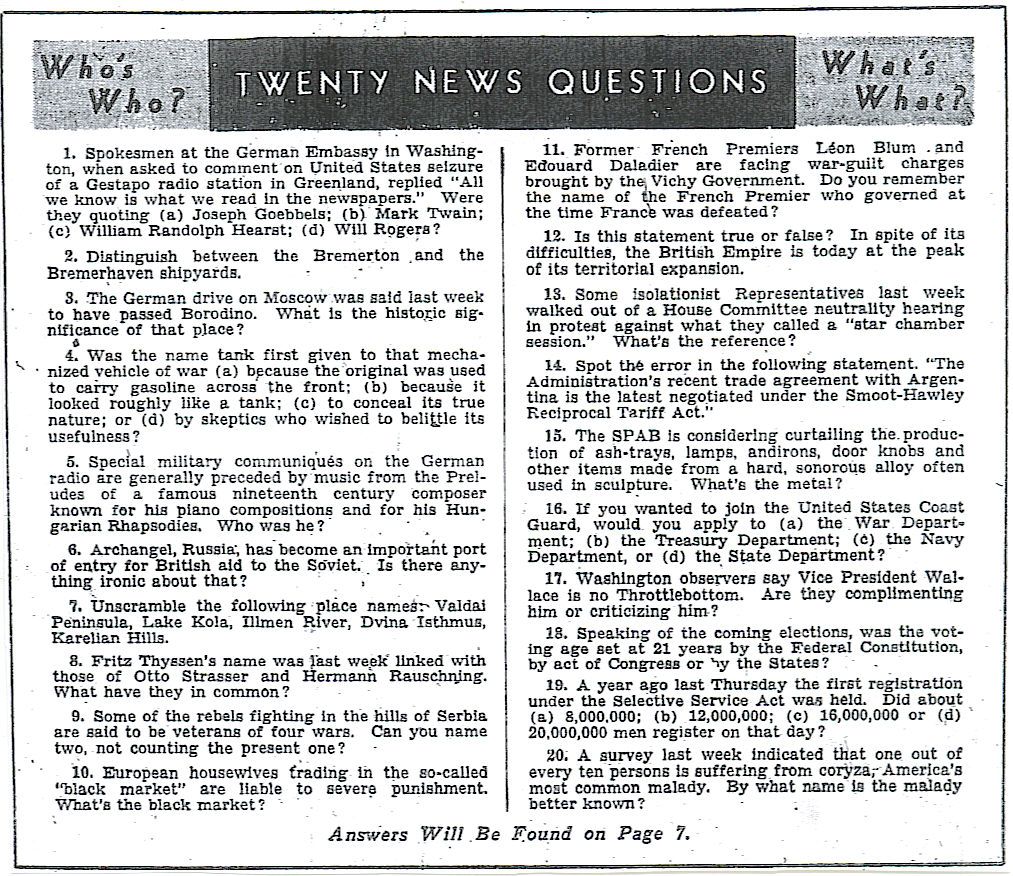
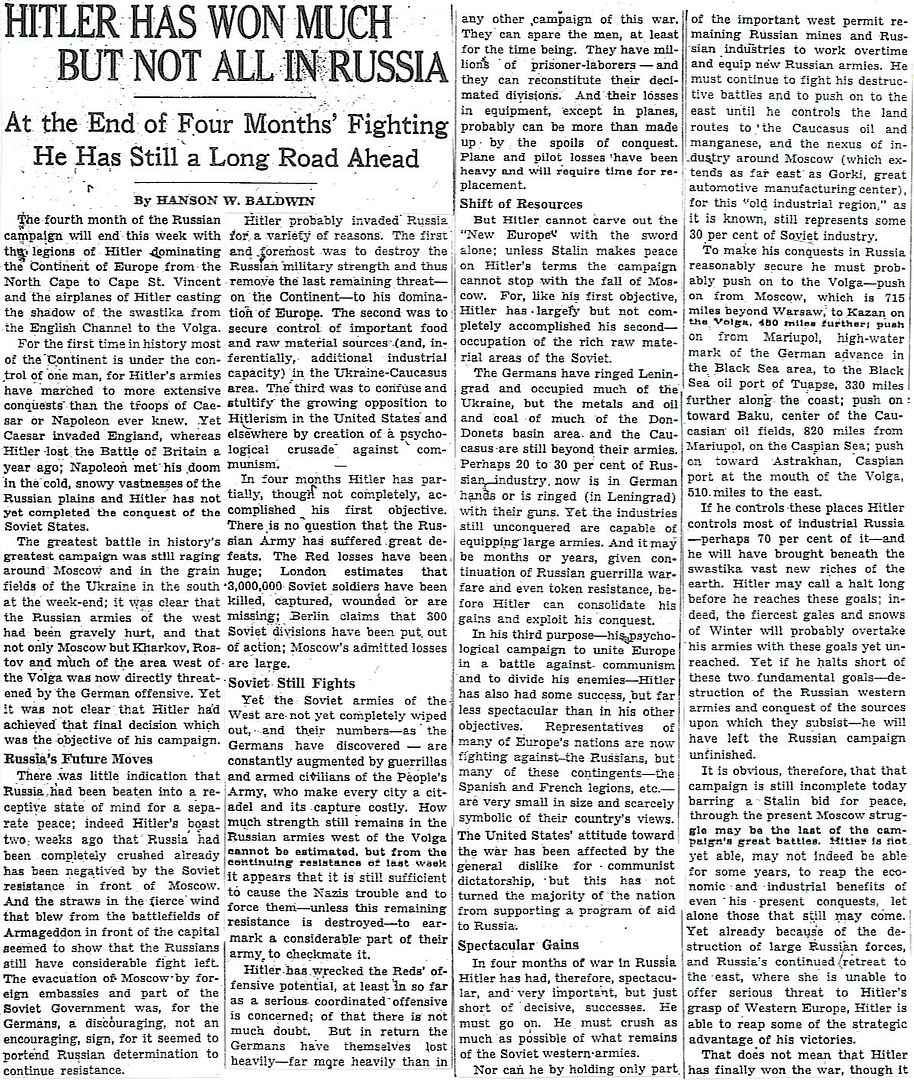
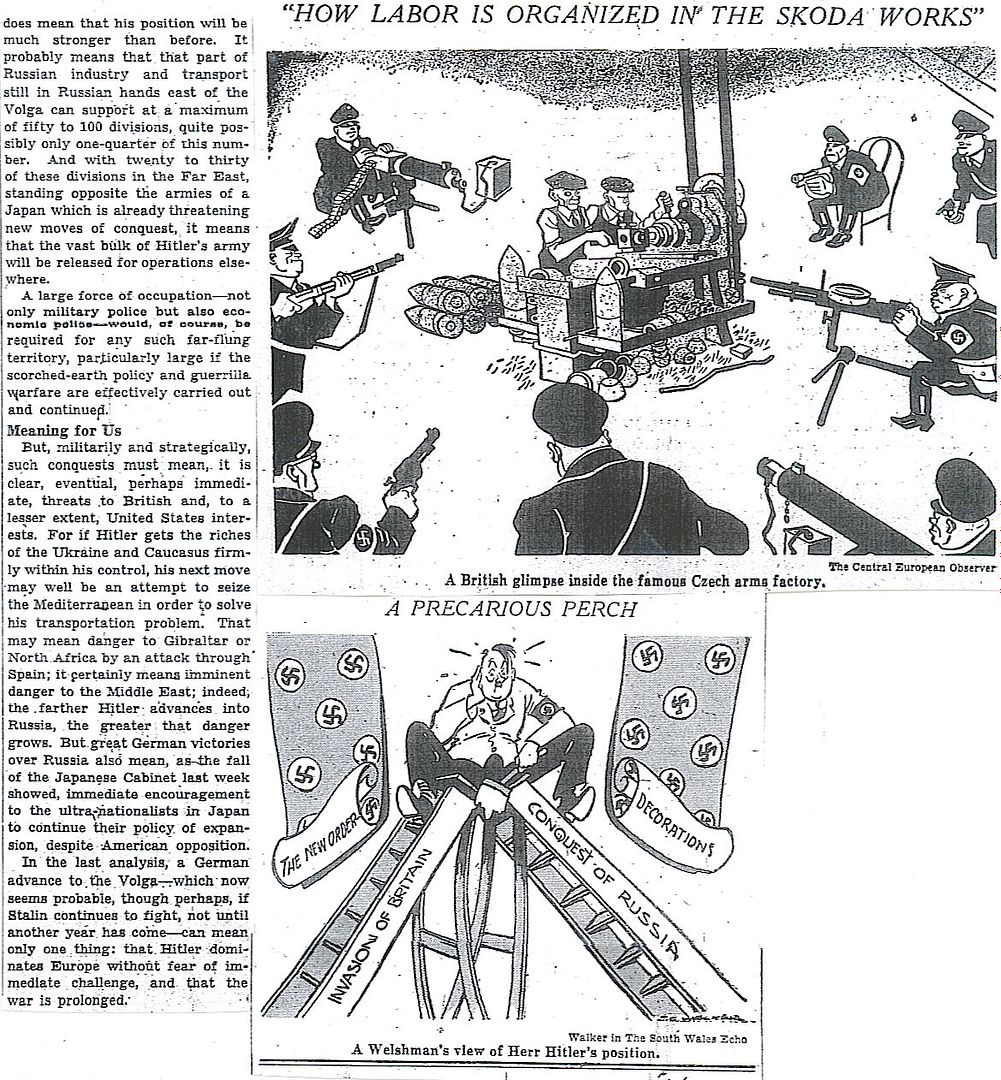
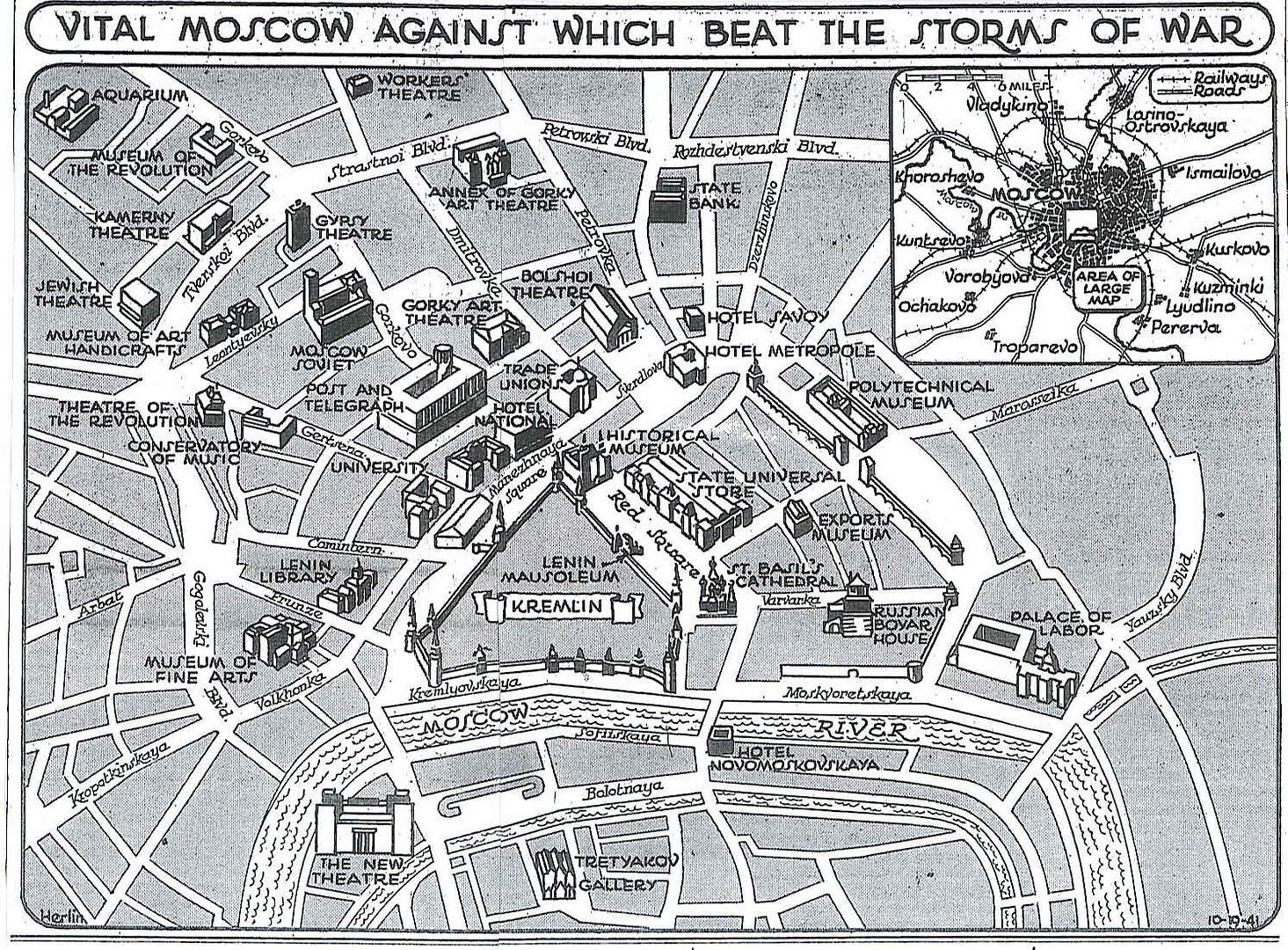
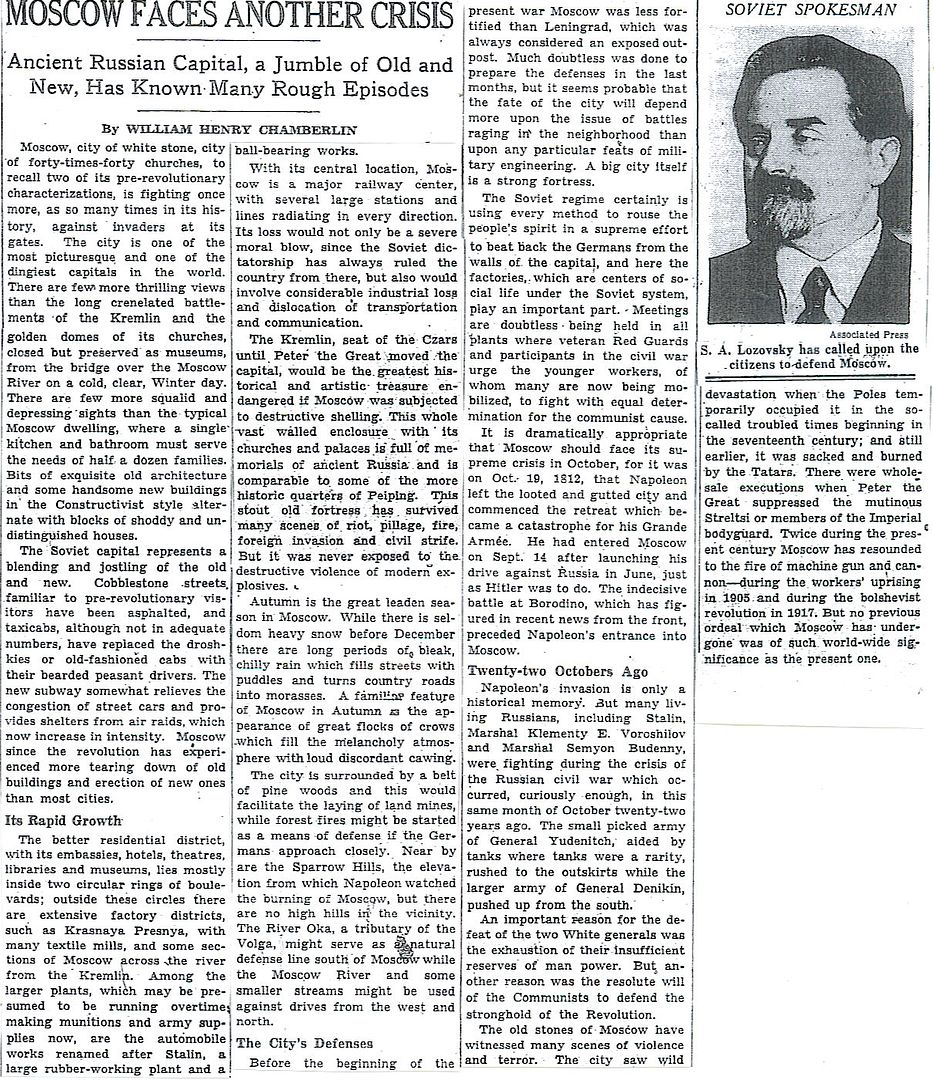
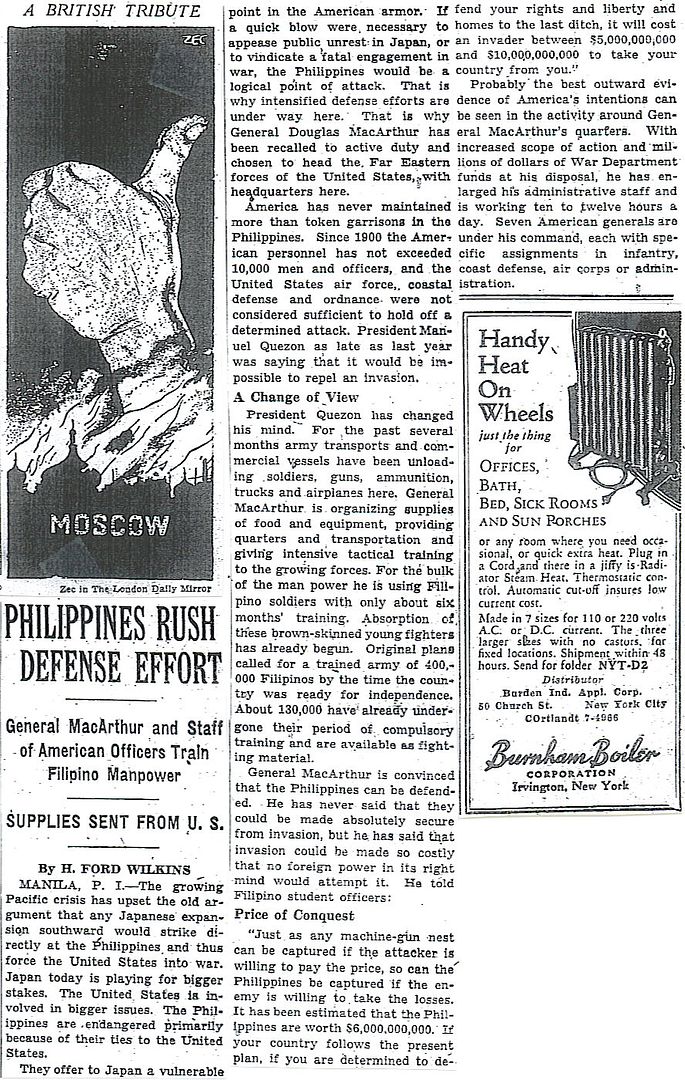
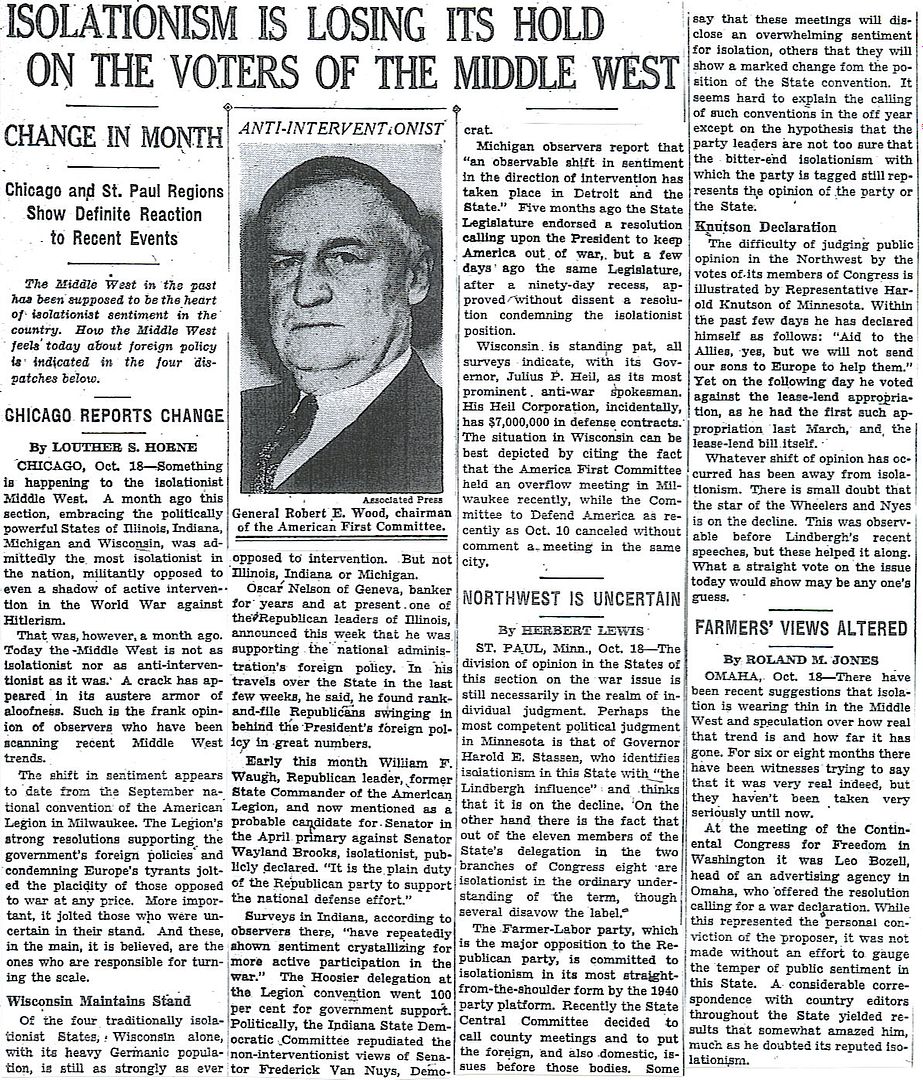
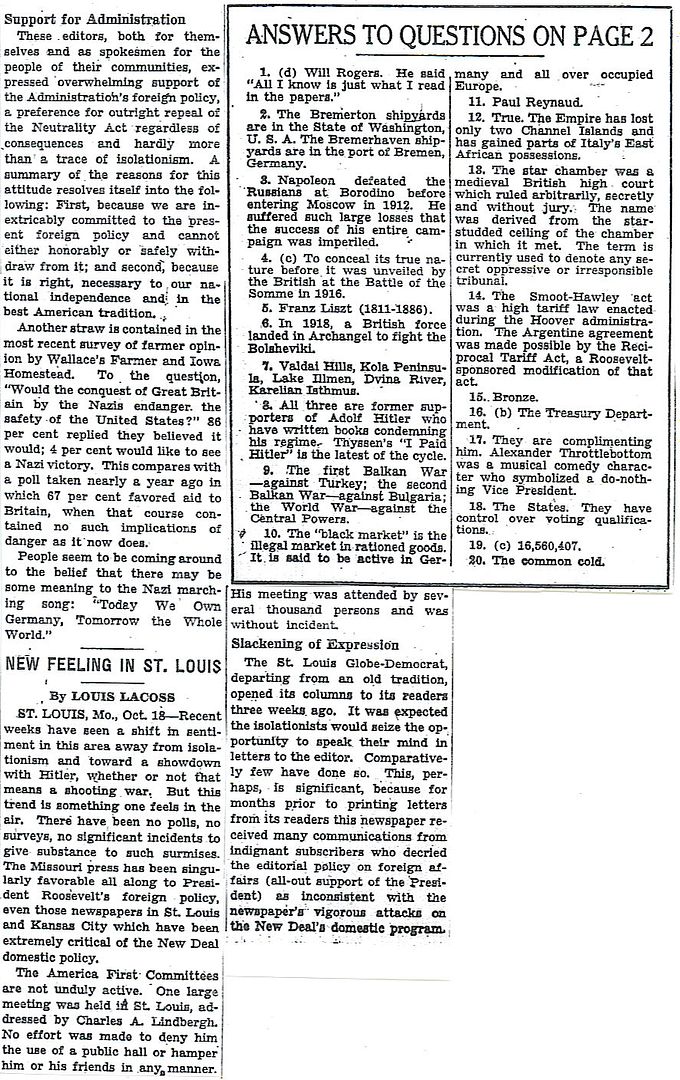
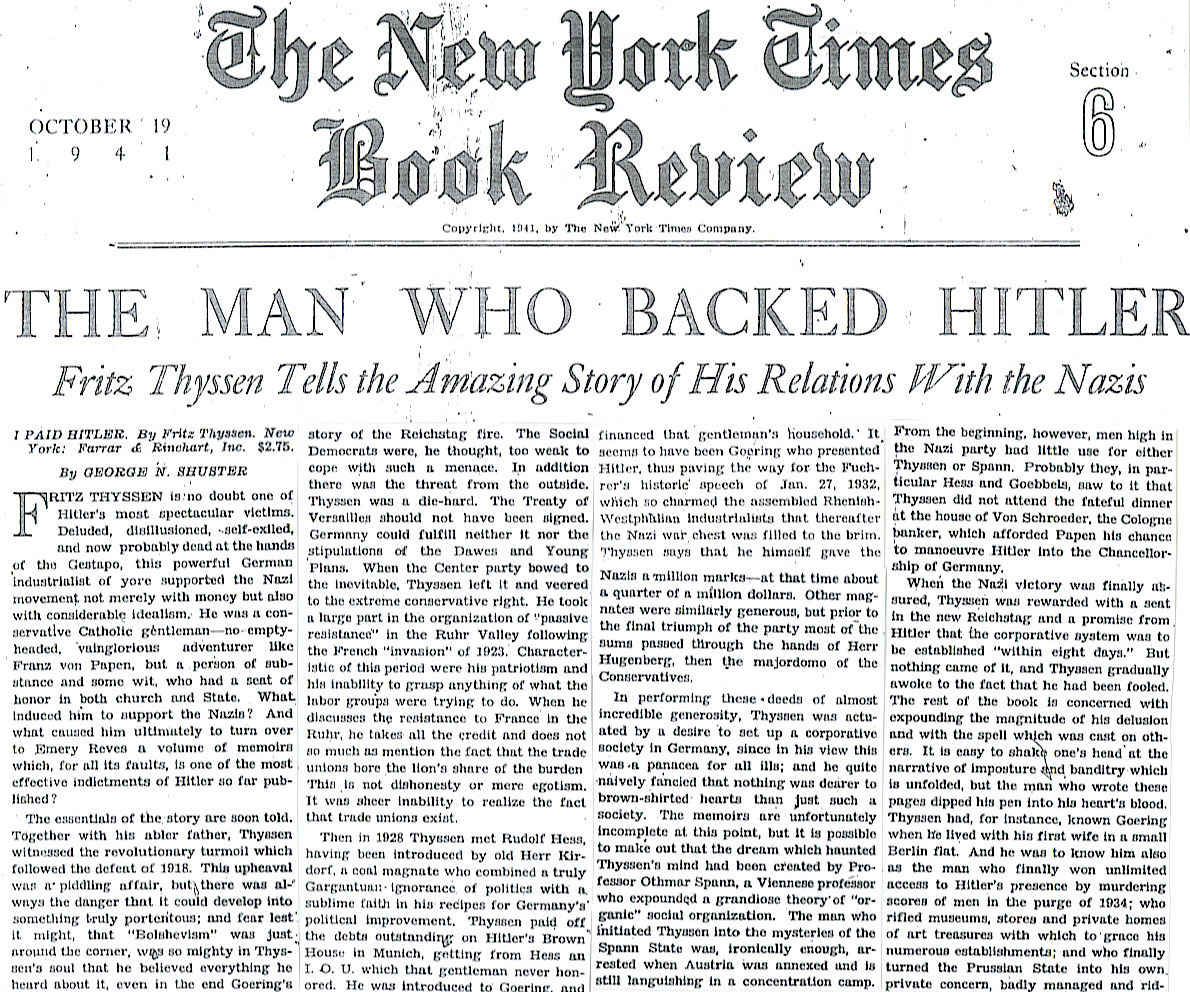
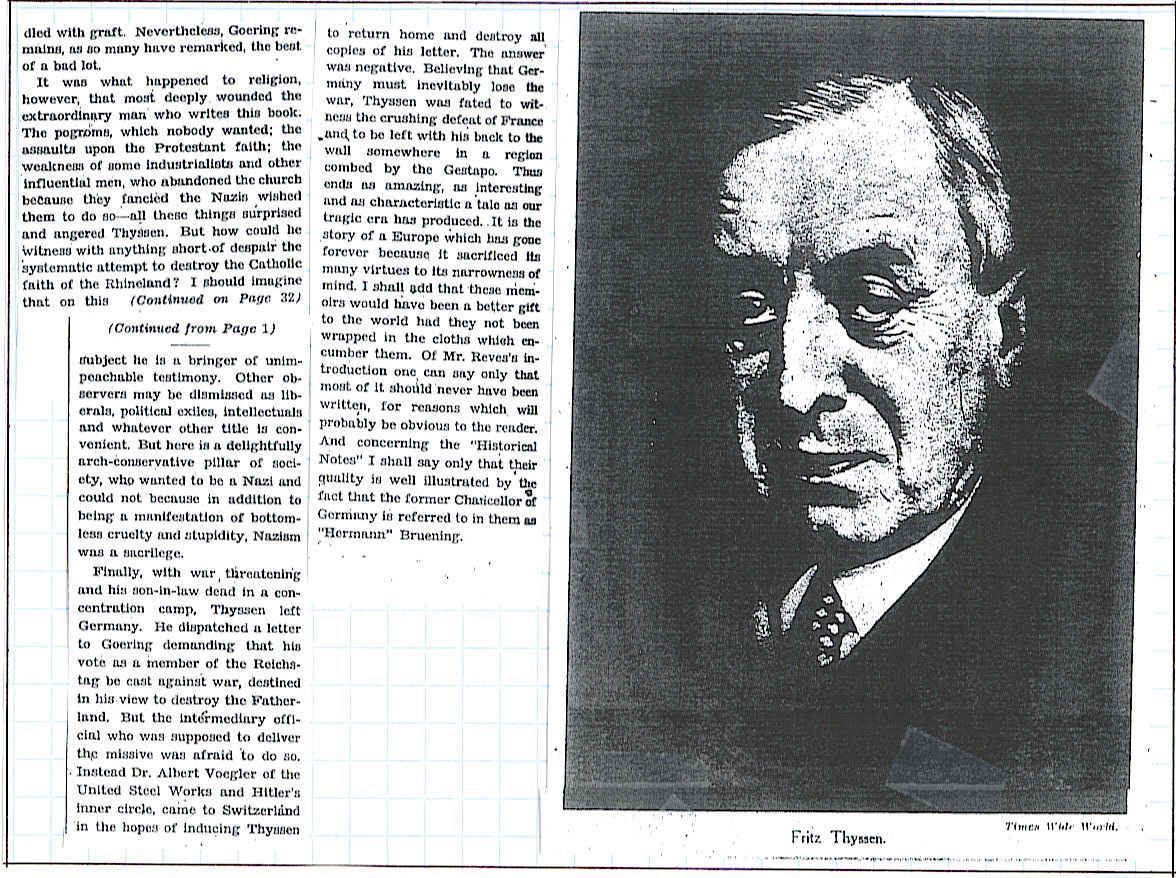
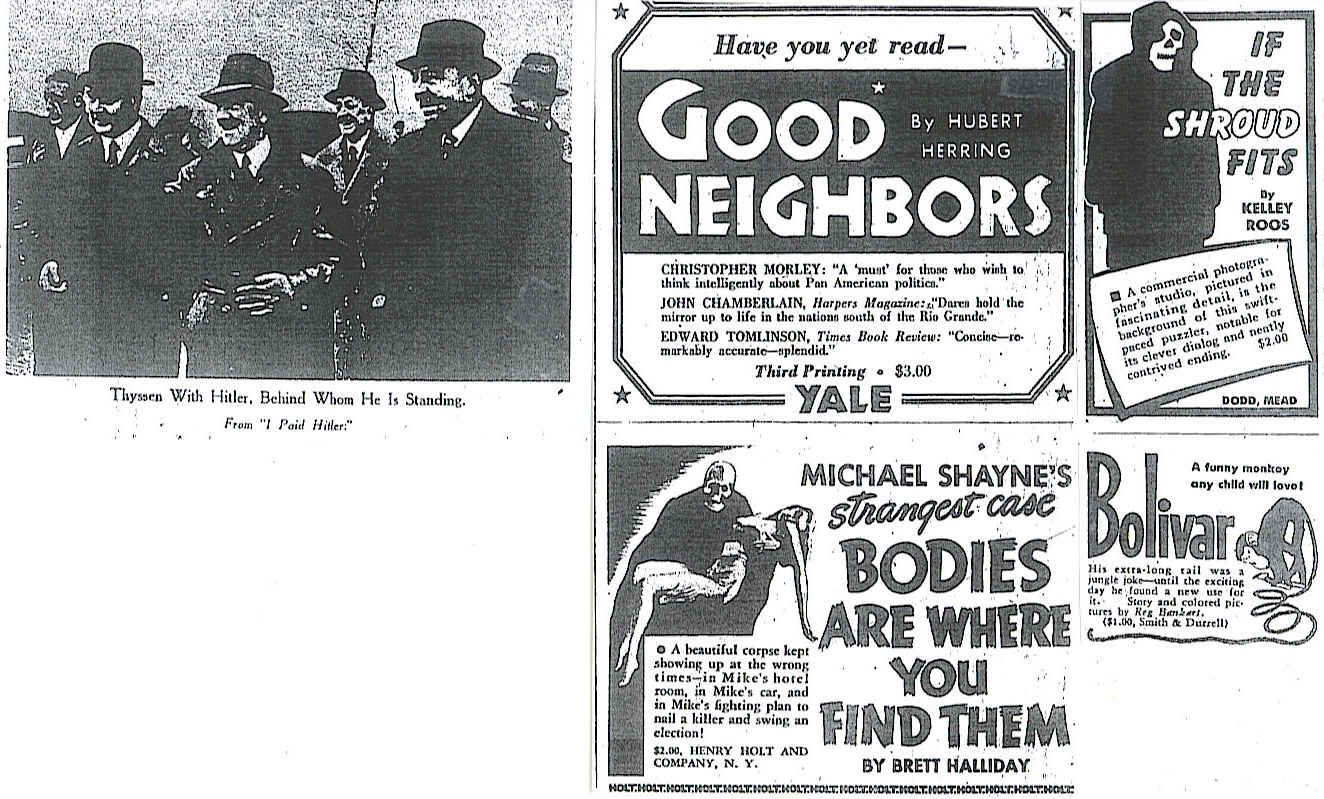
The News of the Week in Review
Twenty News Questions – 10
Hitler Has Won Much but Not All in Russia – 11-12
Vital Moscow Against Which Beat the Storms of War (map) – 13
Moscow Faces Another Crisis (by William Henry Chamberlin) – 14
Philippines Rush Defense Effort (by H. Ford Wilkins) – 15
Isolationism is Losing Its Hold on the Voters of the Middle West – 16-17
Answers to Twenty News Questions – 17
The New York Times Book Review
I Paid Hitler, by Fritz Thyssen, reviewed by George N. Shuster – 18-20
http://www.onwar.com/chrono/1941/oct41/f19oct41.htm
Soviets to defend Moscow
Sunday, October 19, 1941 www.onwar.com
In Moscow... Soviet leader Stalin announces his intention to remain in Moscow despite the threat from advancing German forces. Martial law is declared in the city and work ordered on three fixed defensive lines around it.
http://homepage.ntlworld.com/andrew.etherington/month/thismonth/19.htm
October 19th, 1941
U.S.S.R.: Most of the diplomatic corps and Soviet government have left Moscow, but Stalin announces he is remaining. defence lines are being built at a hectic pace on 3 sides of the city.
Moscow: Troops from Siberia and the Far East arrive at the Moscow front.
Sea of Azov: Taganrog falls to the advancing German 11th Army.
MEDITERRANEAN SEA: U-204 (Type VIIC) is sunk near Tangier, at position 35.46N, 06.02W, by depth charges from the British corvette HMS Mallow and sloop Rochester. 46 dead (all crew lost). (Alex Gordon)
AFGHANISTAN: The government consents to the ejection of Axis nationals. (Jack McKillop)
CANADA: Minesweepers HMCS Minas and Malpeque arrived Halifax from Esquimalt. (Dave Shirlaw)
ATLANTIC OCEAN: USN destroyers USS Charles F. Hughes (DD-428) and USS Gleaves (DD-423), while screening convoy HX 154, depth-charge suspicious contacts in positions 59°58’N, 23°15’W, and 60°00’N, 23°20’W, and 59°57’N, 22°41’W.
Unarmed U.S. freighter SS Lehigh is torpedoed and sunk by German submarine U-126 about 75 miles (120;.7 km) off Freetown, Sierre Leone, in position 08°26’N, 14°37’W. While there are no fatalities, four men are slightly injured. (Jack McKillop)
USS Mason (DD-191), was commissioned as HMS Broadwater (H-81) on 2 Oct. 1940, as part of the bases-for-destoryers deal. Today she is escorting convoy SC48 between St. John’s Newfoundland and Iceland.
Broadwater is torpedoed by U- 101 and sinks. (Ron Babuka)
U-71 fired two torpedoes at a cruiser escorted by two destroyers in the North Atlantic, but without success.
U-204 sank SS Inverlee.
U-206 sank SS Baron Kelvin. (Dave Shirlaw)
Hanson Baldwin’s analysis today is quite perceptive. There are a lot of experts who are writing off the USSR at this point but Baldwin sees lots of fight left in Stalin’s armies. And he accurately divined Hitler’s war aims, as well as the need for him to press on.
One thing he touches upon, but Hitler does not heed, is the need for the Wehrmacht to go into winter quarters and dig in. Now. While the Russian winter savaged the German armies before Moscow, it’s this period of fighting that set up the Germans for defeat in Winter. Struggling forward in the mud, without adequate supply lines that are left behind, and lacking proper clothing, the Germans are burning out motor vehicles, horses, and their men. The hard core of HCO’s, many of whom were soldiers in the last war, cannot stand the constant rain and cold. They are getting sick and exhausted now, and won’t be able to survive the winter when it comes.
Thus we get to the whole fallacy of Barbarossa: the thought that the campaign against the USSR could be won in one campaign season. Given the distances and the logistic limitations, it was an impossible task. As tempting as it was to press on against the weakened Red Army after the victories at Bryansk and Vyazma, the Germans should have stopped and dug in. During the winter, it would have been the Red Army that burned itself out in fruitless assaults on prepared Germans positions, while the Germans could have kept their losses within acceptable limits.
Barbarossa had to be a two year campaign to be successful, but it wasn’t going to be any other way with Hitler in charge of the German war machine, which had been built for centuries on the premise of quick victory.
HWB is one of my favorite aspects of this project. I am eager to read his analyses during the next year. Which gets me thinking of the situation in the U.S.A. a year from now. In October 1941 congress is hotly debating whether merchant ships should be armed for self-defense against U-Boats. The military lacks sufficient aircraft to monitor the approaches to Hawaii, our main bastion in the Pacific. The army recently concluded war games in Louisiana that exposed serious deficiencies in the command structure. We are clearly not ready to get involved in a one front war, let alone a two-front war, Yet one year from now we will be in the preliminary stages Torch, the invasion of North Africa. If I didn’t know better (or "now better," as they say in Lincoln) I would say you can’t get there from here.
Torch was little better than a life-fire extension of the Louisiana war games. There were some hotheads who wanted us ashore in France a year from now. Even though the Wehrmacht was using France as “reserve depot” to train new divisions and refit burned-out divisions from the Eastern Front, I shudder to think what they would have done to the American army of 1942 in France.
Right now, as of October 19, 1941, our country is woefully unprepared for a war everybody must know will come sooner or later.
An interesting potential study here; the American people were faced with a great challenge right over the horizon, and yet we lacked the political will to do anything about it until it blew up in our faces. How do you think the current economic and fiscal situation is playing out? Same? Or different?
http://www.reformed-theology.org/html/books/wall_street/chapter_01.htm
couldn't find the book. Big business appeared to directly and indirectly contribute to WWII.
Personally I do not like big business but the answer to the problem is not big government but more freedom.
I agree with henkster in that TORCH was just Louisiana with real bullets. Our biggest failing right now is that we have generalship with a peacetime mentality. Though we are working in creating the arms in which to field an army, there really are not too many commanders who are actively preparing for war. General Short will be a good example of this. He is stationed in a volatile region but in reality he is riding out what even without being relieved would be his last tour before retirement. His head isn’t in the game and neither is many of the other commanders.
Despite Churchill’s ulterior motive to prevent the France landings in 1942, he was absolutely correct, as was Alan Brooke, that a landing at that point would have been disastrous. The U.S. soldier, and more importantly, the U.S. commanders needed North Africa to shake off the rust and weed out the incompetent and outmoded commanders in the field (with limited success). We are fortunate that in general, we were quick studies.
Fritz Thyssen and his wife spent the war in prison in Germany. After the war, he rejected as false this book written by a Hungarian journalist as Thyseen’s supposed autobiography.
Maybe that is why you couldn't find the book, PeterPrinciple.
Maybe that is why you couldn't find the book, PeterPrinciple.
Yes in the late 30’s he did change his ways but there does appear to be evidence that he strongly financially supported Hitler in the early years in his opposition to the communists. Maybe you and I might have done the same ?
Disclaimer: Opinions posted on Free Republic are those of the individual posters and do not necessarily represent the opinion of Free Republic or its management. All materials posted herein are protected by copyright law and the exemption for fair use of copyrighted works.